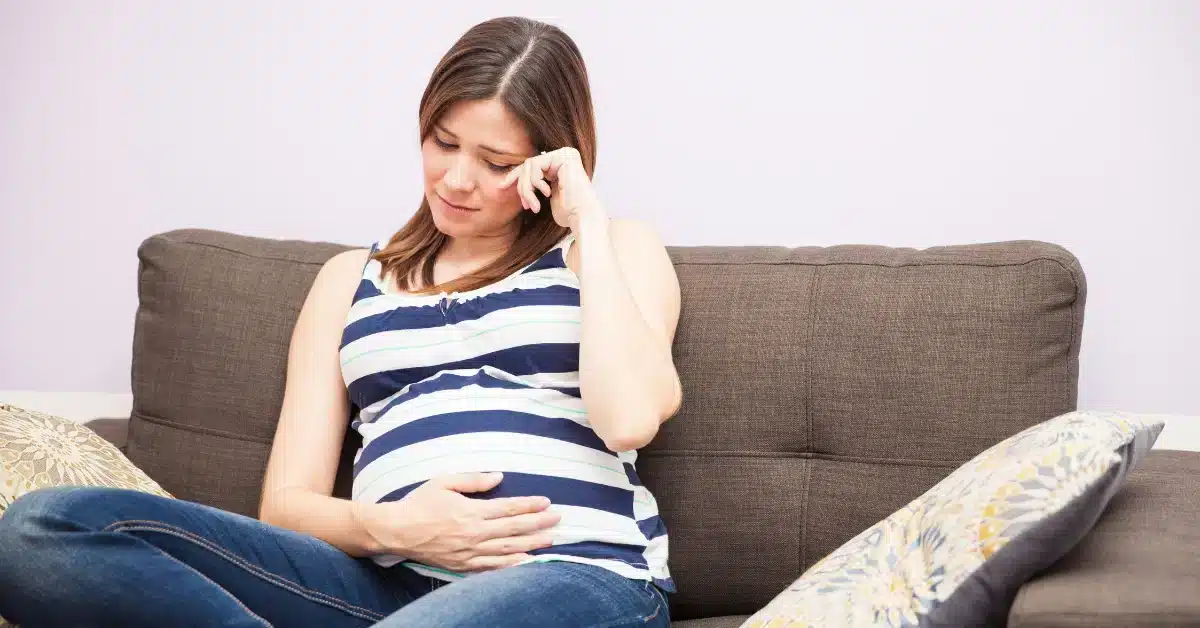Mom-to-be Haircare: Is Hair Rebonding Safe for Early Pregnancy?
During pregnancy, women undergo various physical and hormonal changes.
These changes can lead to changes in hair texture, causing frizzy, dry, or unmanageable hair.
To maintain their desired hairstyle, some women might consider hair treatments like rebonding.
However, it is important to understand the potential risks associated with such procedures during pregnancy.
The following article explores if chemical treatments like hair rebonding are safe during early pregnancy.
Harmful chemicals in hair rebonding treatment
The hair rebonding procedure involves chemically breaking the natural bond in the hair and rearranging them to give a different look to your hair.
The process involves the use of Formaldehyde to break the hair’s bonds.
Formaldehyde is a colorless, strong-smell chemical linked with irritating the eyes, skin, nose, and throat.
It has also been identified as a carcinogen by the International Agency for Research in Cancer, as its prolonged exposure can cause certain types of cancer.
These chemicals can pass from the scalp to the bloodstream and harm the unborn child.
On the other hand, most of these hair relaxants used in hair rebonding contain a chemical called Lye (Sodium Hydroxide).
Lye can cause skin irritation and rashes.
During pregnancy, your skin is susceptible; chemicals like Lye and Formaldehyde can cause adverse effects and can also pass into the fetus.
Potential side effects
Hair rebonding during pregnancy can harm the mother and baby.
Although the scientific evidence is limited, there are some concerns related to pregnancy and chemical hair treatments,
Chemical absorption
The chemicals used in hair rebonding, including Formaldehyde or Sodium hydroxide, can be absorbed through the scalp and into the bloodstream.
This chemical absorption may pose a risk to the developing fetus.
Scalp irritation

Pregnancy increases the scalp’s sensitivity, leading to irritation or allergic reactions.
Chemicals used in hair reattachments, such as hair soothers and straighteners, can cause irritation, itching, redness, dermatitis, and even burning in some cases.
These reactions can be adverse during pregnancy due to increased sensitivity.
Heat exposure
Hair rebonding requires heat-styling tools such as straightening irons or blow dryers.
Prolonged or excessive heat exposure can damage the hair, making it brittle and prone to breakage.
This damage can be more challenging to repair during pregnancy due to the limited use of certain hair care products and treatments.
Unpleasant odors
Hair rebonding involves harsh chemicals, which may emit a strong odor.
This smell can be overwhelming and cause nausea in pregnant women who may be more sensitive to smells.
Is hair rebonding safe during the first trimester of pregnancy?

Hair rebonding in the first trimester can harm the mother and the growing baby.
There is limited evidence to show the direct effects of chemical treatments like hair rebonding in pregnancy.
But, the chemicals used in the hair treatment can be absorbed through the scalp, entered the bloodstream, and passed onto the baby.
Any harmful chemicals in the blood can have severe effects during the early pregnancy or in the first trimester of pregnancy.
These chemicals might hinder a baby’s growth and affect the mother’s health.
Hence, avoiding chemical treatment or consulting an expert is advisable before going for one.
Conclusion
Although no evidence confirms the direct risks associated with hair rebonding during pregnancy, it is generally advised to avoid it.
The hormonal changes, increased scalp sensitivity, and potential chemical exposure can affect both the mother and the baby.
Prioritizing the safety of both the mother and the developing baby should be the primary concern.
If the hair becomes unmanageable due to hormonal changes in the body, try exploring alternative hair care methods.
It is best to consult your gynecologist before going for any hair treatments during pregnancy.
Frequently Asked Questions
Can I get my hair done while pregnant in the first trimester?
Avoiding chemical treatments, including hair rebonding, is generally recommended during the first trimester of pregnancy due to the potentially high risks and uncertainties associated with the developing fetus.
Can I straighten my hair while pregnant?
Straightening your hair while pregnant is generally safe if you take precautions to minimize heat exposure and avoid harsh chemicals. However, consult with a professional stylist and consider alternative methods that are gentle and pregnancy-friendly.
What hair treatments are safe in the salon during pregnancy?
Hair treatments that use natural products like essential oils are considered safe during pregnancy. Also, according to the American Pregnancy Association, most semi-permanent and permanent dyes are not toxic and safe for pregnant women. But, it is best to consult your doctor before taking any hair treatments.
WowRx uses only high-quality sources while writing our articles. Please read our content information policy to know more about how we keep our content reliable and trustworthy.






